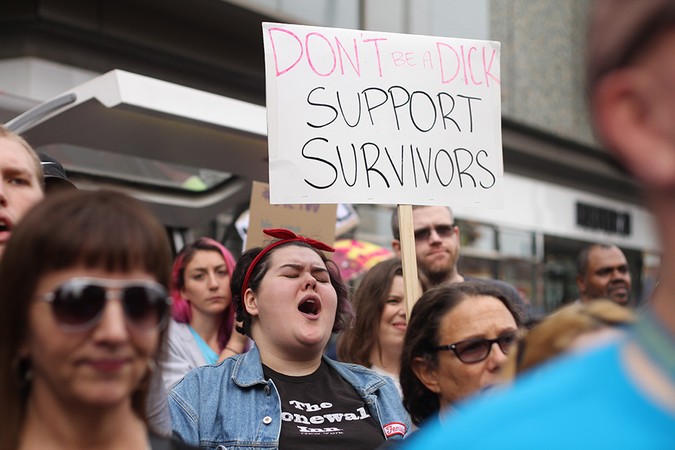Ethical fashion company CEO addresses human trafficking

Krochet Kids, Known Supply CEO and cofounder talks about the positive impacts of knowing one’s clothing.
Jessica Goddard, Features Editor
• February 6, 2018
Beyond the bubble: Women across Asia voice their stories of sexual assault
While #MeToo often brings up images of Hollywood, the movement has begun to reach much farther, including into countries where women may risk their lives to demand greater protections.
Many women in China have begun to stand up in solidarity, despite opposition from the ruling Communist Party. The government has responded by censoring news sources and monitoring the internet for phrases having to do with anti-sexual harassment and a #MeTooChina, warning the participants they could be labeled as traitors. More and more women have shared their personal stories directly online, however, causing unrest not only within the government, but also among a handful of accused university officials who may lose their jobs.
“We’re not brave enough to stand out as one individual. But together, we can be strong,” said Sophia Huang Xuequin, a journalist in southern China, to the New York Times.
This trend has continued in Japan as well, where rape and sexual assault are often depicted in pornogaraphic materials used for sex education. While the crime rates appear low on paper compared to the United States, Japanese citizens are reportedly less likely to report an assault, due to a lack of education on topics like date rape, consent and sexual violence.
Last month in Pakistan, women fought to unban the movie “Verna,” which depicts the story of a teacher who faces sexual assault, and later takes the matter into her own hands after receiving no help from the authorities. Originally banned for “edgy content,” Pakistani women made a public outcry fueled by social media to get the ban lifted.
As #MeToo continues to grow in the US, it has begun to encourage conversations in several different countries.
Jana Eller, Office Manager
• January 25, 2018
Women unapologetically delve into apologetics

At the inaugural Women in Apologetics conference, women give intellectual arguments for the Gospel.
Julianna Hernandez, News Editor (Spring 2019)
• January 24, 2018
Head shaving trend and what it means for ideals of femininity

Women with buzz cuts show how radical steps toward confidence pay off.
Ashley Brimmage, Opinions Editor
• January 23, 2018
GRIT hosts impactful holiday event

The leaders of the blog “GRIT” invited Biola’s community to participate in a Christmas party that gives back.
Caitlin Blackmon, Staff Writer
• December 6, 2017
Survivors speak out

Thousands attend the #MeToo Survivor’s March and rally.
Jessica Goddard, Features Editor
• November 14, 2017
GRIT meets a need

The women’s resource collective has had a powerful impact in only six months.
Jessica Goddard, Writer
• November 7, 2017
Feminism is not about hating men

A complex and controversial movement finds itself victim to common misconceptions.
Morgan Mitchell, Writer
• May 2, 2017
Billy Graham rule proves beneficial for marriage

Vice President Mike Pence effectively use rule to subvert temptations.
Lucas Weaver, Writer
• April 26, 2017
Marketplace feminism insults women’s intelligence

False empowerment in advertisements takes focus away from true activism.
Morgan Mitchell, Writer
• April 26, 2017
Love supersedes equality of outcome

The dress code is an act of love not inequality.
Eric Nimmo, Writer
• April 12, 2017
Chimes’ Athlete of the Week: Women’s Tennis’ Katie Boesl
![Amelia Mowry/THE CHIMES [file]](https://chimesnewspaper.com/wp-content/uploads/2017/04/AotW_AmeliaMowry_File.jpg)
Boesl’s recent streak of superb play has helped lift women’s tennis to new heights.
Kyle Kohner, Copy Editor & Office Manager
• April 5, 2017
View this profile on InstagramThe Chimes (@chimesnews) • Instagram photos and videos

Thomas Rahkola, Editor-in-Chief • October 8, 2025
Biola University received a $40 million donation from a Silicon Valley executive to advance tech education programs. The funds will go towards...





